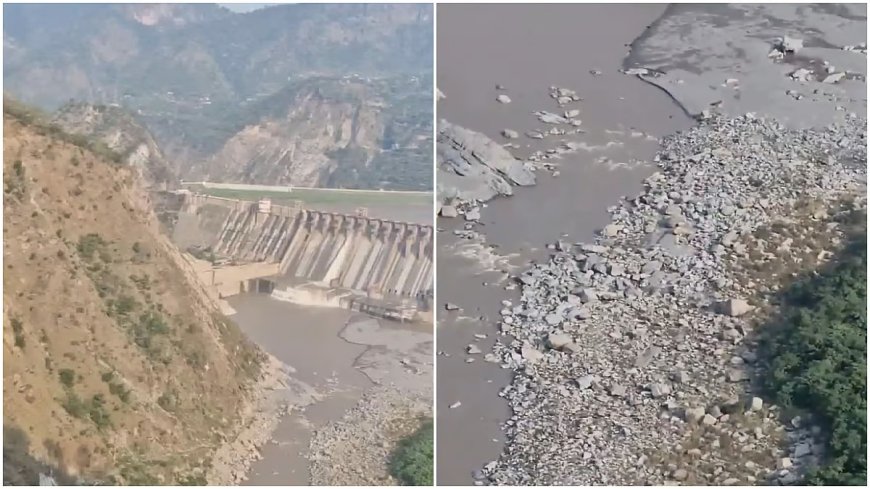New Delhi, May 6: In the wake of the deadly Pahalgam terror attack that claimed 26 lives, India has escalated its diplomatic and strategic response by halting the flow of the Chenab River into Pakistan. The move, which includes closing the gates of the Salal and Baglihar dams in Jammu and Kashmir, has triggered serious concerns in Pakistan, with its Indus River System Authority (IRSA) warning of a 21% water shortage during the early Kharif season.
The action follows India’s announcement to suspend key provisions of the Indus Waters Treaty, signaling a hardening stance after the April 22 terror strike at Baisaran meadow near Pahalgam. At least five to six terrorists, suspected to be from across the border, opened fire on tourists and locals, killing 26 people, including a pony ride operator.
In response, India shut the gates of the Salal Dam in Reasi district on Monday, followed by the Baglihar Hydroelectric Power Project on Tuesday. This led to a marked drop in water levels at Akhnoor and significantly reduced the inflows of the Chenab River at Marala Headworks in Pakistan.
The IRSA Advisory Committee, during its recent meeting chaired by Chairman Sahibzada Muhammad Shabir in Islamabad, expressed deep alarm over the declining river inflows. The committee noted that, if the current situation continues, Pakistan could face a 21% shortage during the early Kharif period (May–June 10), with an additional 7% shortage anticipated during the late Kharif season (June 11–September).
“The abrupt reduction in Chenab river supplies by India has raised serious concerns. If the trend persists, overall water shortages during the crucial sowing season could worsen,” IRSA stated in a press release. The authority also confirmed that the water availability will now be monitored on a daily basis.
Locals in Jammu and Kashmir, meanwhile, have rallied in support of the government’s decision. “This is a very good step to teach them a lesson… They should understand now,” said a resident of Jammu. Another added, “Bad days are coming for Pakistan. If they continue like this, war will happen. How much will India tolerate?”
India's strong response marks a significant turning point in the Indo-Pak water-sharing dynamic, with strategic control over transboundary rivers now being used as leverage amid heightened cross-border tensions. The suspension of the Indus Waters Treaty—considered a rare and longstanding example of India-Pakistan cooperation—is expected to further strain bilateral relations.
The situation remains tense as both nations brace for the geopolitical fallout of India's latest water diplomacy move.




 Previous
Article
Previous
Article











